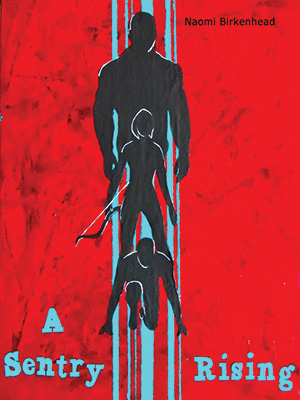

Before the advent of cheap bookbinding, authors meted out their work in regular doses, a chapter or few at a time in magazines and newspapers. Charles Dickens, Alexandre Dumas and Leo Tolstoy all peddled their fiction in serialized bursts and popularized that publishing form in the 19th century. These days, in an age of affordable paperbacks, American episodic fiction seems either anachronistic or niche—chiefly the province of graphic novels and comic books.
But former Silicon Valley chip designer and management consultant Jerry Fan believes technology has made serialized fiction relevant again, with the proliferation of online self-publishing platforms. Through his fledgling startup, JukePop, he offers budding authors a chance to build a readership, one chapter at a time. Using analytics—for instance, looking at the rate of people who abandon the story and at what point they opt out—writers can learn what grips or loses an audience.
“I don’t have a publishing background, which I know is bizarre considering what I do now,” Fan says. “But I have a long history of reading episodic fiction. In Taiwan, where I’m from, serialized fiction is alive and well.”
A few years ago, he started paying attention to the booming self-publishing industry, out of personal and entrepreneurial interest.
“I saw that the problem with self-publishing is that there’s still no good way to determine quality,” he says. “The readability of a story, the way readers responded to it, was still very much a mystery.”
The sheer quantity of self-published work daunted librarians and traditional publishers trying to sort through fake reviews on Amazon, industry analysis in book journals and other selective publications.
“I thought there’s got to be a better way to determine the quality of a story with a quantitative measurement,” Fan says. “The whole idea with serialized fiction is that you have to get your reader to come back for the next episode. If you can do that, chances are your story is quality already.”
JukePop gauges how likely it is that a reader will come back for the latest installment, which gives an author measurable feedback if they’re thinking about sinking money into a vanity press and new cover art, or shopping the tale out to a conventional publishing house.
“In Silicon Valley talk, it’s bringing the idea of beta testing to traditional publishing, getting a better product out there and then halfway through you can invest the money to make it better,” Fan says. “Traditionally, a writer will spend a year or two finishing a manuscript, then sum it up in an inquiry and then knock on doors for publishers. You spend all this time without knowing if your story has appeal or not.”
Already, some of the site’s authors have found commercial success, including Cindy Koepp, who published her novel, The Condemned Courier, on JukePop, and recently got picked up by PDMI Publishing. The publishing company’s director had followed Koepp’s submissions on JukePop for months as her story progressed.
“She kept up with the serial as it unfolded and often had suggestions for which way the story should head next,” Koepp says. “Although she knew I was a writer, The Condemned Courier was her first opportunity to see my writing in action.”
Starting this week, JukePop’s 800-plus titles will be available for free through the Santa Clara County Library System, even for non-members.
“This is such an innovative way to showcase new authors and their stories,” says Megan Wong, the county’s virtual library manager. “It also provides authors with a chance to share their stories with a larger audience and obtain their feedback and validation.”
JukePop titles are available in serial form at sccl.org/episodic-fiction.


